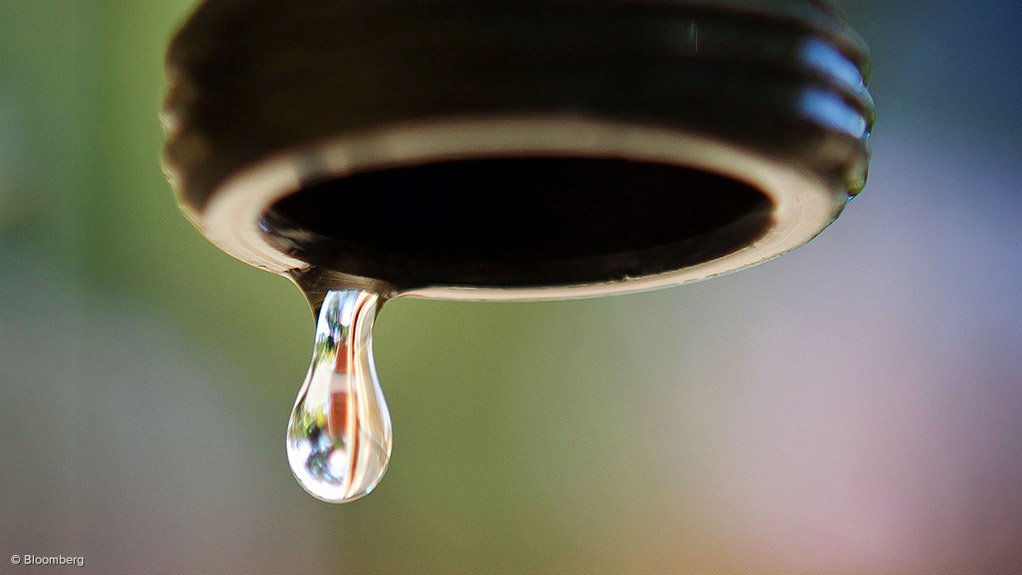Capetonians can use more water – and pay less
Capetonians can now use a bit more water every day – and will pay around 25% less for it.
The slightly less stringent water restrictions kicked in on Monday as the combined level of supply dams reached 75.9% of storage capacity.
While the rocketing fuel price is making a dent in consumers' pockets, the cost of Cape Town water that escalated earlier this year when Day Zero was hovering just weeks away has now come down with the relaxing of water restrictions from Level 6 to Level 5.
Deputy Mayor Ian Neilson said Cape Town now had the lowest water usage levels in the country.
"Before the drought Cape Town was using 200 litres a person a day. Now it is down to 125 litres a person a day. That's the gross consumption, which includes all water use, including residential and industrial use and water lost to leaks.
"In comparison, Joburg uses between 300 to 350 litres a person a day," Neilson said.
Neilson said the minor adjustments in the water restrictions, where residents can now use 70 litres per person a day instead of 50, were an interim measure until the City knows what the national Department of Water and Sanitation planned to do regarding water allocation for next year.
Because of the devastating three-year drought, the national department, which controls water allocations to all users in the country, including cities, towns, agriculture and industry, cut the water allocation to Cape Town in January by 45% and by 60% to agriculture.
The department has said it will review this at the end of October – the start of the dry summer months for the region.
Although most of the winter rainfall was lower than average this year, it was enough to raise the Cape Town supply dam level from a low of 20% in May to just over 75% this week.
"We're waiting to hear from the national department and we're hoping for a fairly major relaxing of water cuts," Neilson said.
Although the Department of Water and Sanitation's instruction to Cape Town to cut its water consumption by 45% has not changed, the municipality was able to ease its water restrictions from Monday – and still stay within the 45% cut – as the supply dams had filled to three quarters full during the winter months.
Most have welcomed the easing of restrictions, but some have criticised it as sending a signal to residents that they can go back to their old higher consumption levels.
Neilson said that possibility was one of the unknowns.
"Our experience from the past has shown that the bounce-back to old ways is generally slow, it takes about five years to get back to old consumption levels.
"More recently in July, with the announcement that there would be no Day Zero, some people said we should never have done that because people would up their water usage – but it never happened."
However, with the lower water tariffs, Neilson said consumption patterns may shift.
Water tariffs vary according to how much consumers use: the more you use, the higher the tariff.
From Monday, commercial and industrial tariffs came down by 18% from R45.75 a kilolitre to R37.50/kl, and restrictions were eased from a 45% cut to 40%.
Residential consumers who use up to 6 kilolitres a month will pay R21.19 per kilolitre – a 26.6% decrease from R28.90/kl.
Consumers who use between 6 and 10 kilolitres a month will now pay R34.43 per kilolitre – a 25% decrease from R46.
A controversial move is the big percentage cuts in tariffs to big water consumers.
Those who use between 10 and 35 kilolitres will get a 56% cut from R120.27/kl to R52.39, while those who use above 35 kilolitres will have a 70% drop from R1000/kl to R300/kl.
Councillor Xanthea Limberg, mayoral committee member for water and sanitation, defended the move, saying few households in the city were likely to use such large amounts of water.
If they did, the City would immediately tell them to cut consumption, and if they failed to do so, the City would fit a "trickler" to their water supply that cuts the amount of water they can get on their property.
"The argument that higher water users are getting more relief is not accurate as prices in the higher steps of the tariff are in practice just one of the City's deterrents to high water use, and negligence by home owners in terms of leaks, with Level 5 being a less severe deterrent," Limberg said.
Environmentalist Patrick Dowling does not buy that argument.
"The fact that City dams are 75% of capacity is hardly a reason for advertising such large tariff reductions for real or hypothetical high-end users, as this creates the impression first, that we have sufficient supplies for more self-indulgent use, and second, that the primary criterion is ability to pay for water – not really careful use," Dowling said.
*The City of Cape Town was told by national government on Monday that it would be getting R553m in drought relief that will be used for the City's groundwater augmentation projects.
Comments
Press Office
Announcements
What's On
Subscribe to improve your user experience...
Option 1 (equivalent of R125 a month):
Receive a weekly copy of Creamer Media's Engineering News & Mining Weekly magazine
(print copy for those in South Africa and e-magazine for those outside of South Africa)
Receive daily email newsletters
Access to full search results
Access archive of magazine back copies
Access to Projects in Progress
Access to ONE Research Report of your choice in PDF format
Option 2 (equivalent of R375 a month):
All benefits from Option 1
PLUS
Access to Creamer Media's Research Channel Africa for ALL Research Reports, in PDF format, on various industrial and mining sectors
including Electricity; Water; Energy Transition; Hydrogen; Roads, Rail and Ports; Coal; Gold; Platinum; Battery Metals; etc.
Already a subscriber?
Forgotten your password?
Receive weekly copy of Creamer Media's Engineering News & Mining Weekly magazine (print copy for those in South Africa and e-magazine for those outside of South Africa)
➕
Recieve daily email newsletters
➕
Access to full search results
➕
Access archive of magazine back copies
➕
Access to Projects in Progress
➕
Access to ONE Research Report of your choice in PDF format
RESEARCH CHANNEL AFRICA
R4500 (equivalent of R375 a month)
SUBSCRIBEAll benefits from Option 1
➕
Access to Creamer Media's Research Channel Africa for ALL Research Reports on various industrial and mining sectors, in PDF format, including on:
Electricity
➕
Water
➕
Energy Transition
➕
Hydrogen
➕
Roads, Rail and Ports
➕
Coal
➕
Gold
➕
Platinum
➕
Battery Metals
➕
etc.
Receive all benefits from Option 1 or Option 2 delivered to numerous people at your company
➕
Multiple User names and Passwords for simultaneous log-ins
➕
Intranet integration access to all in your organisation





















